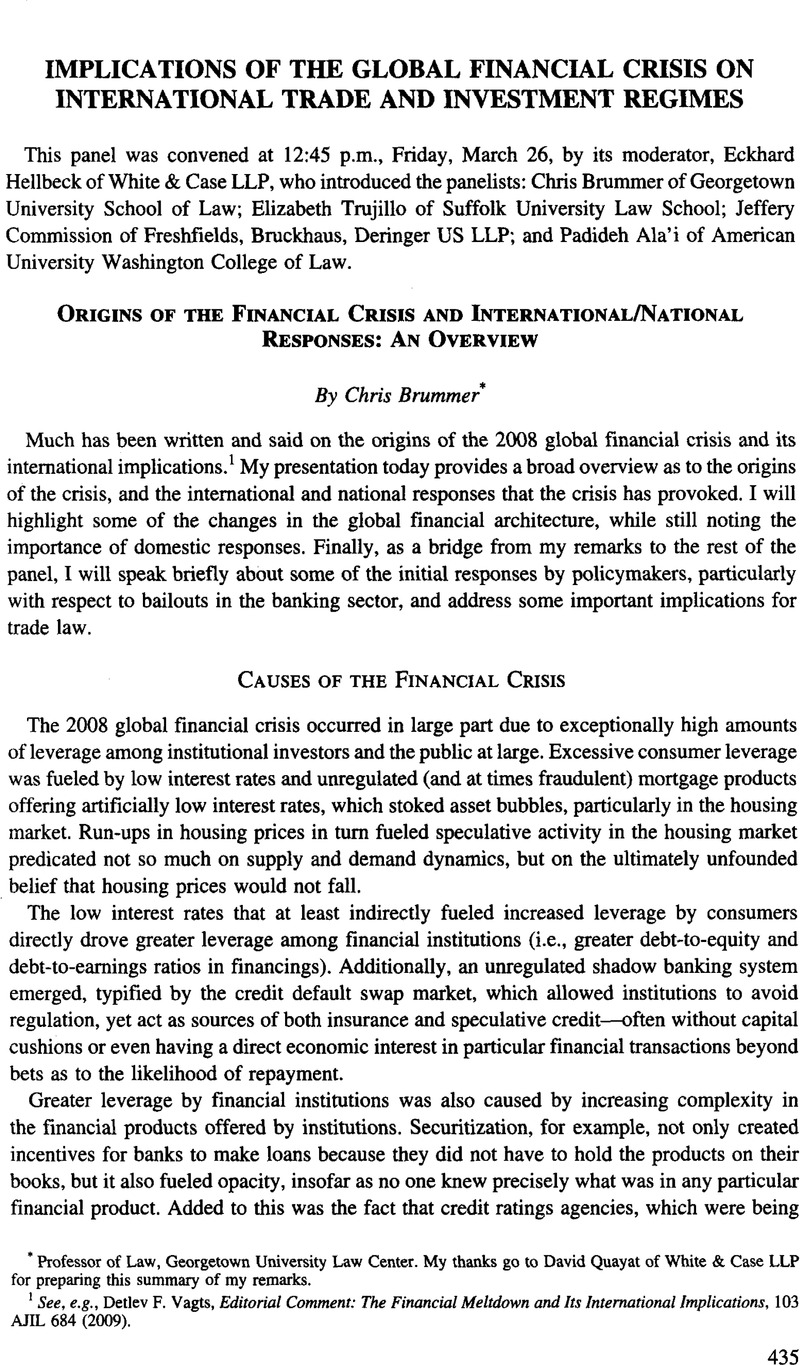Published online by Cambridge University Press: 28 February 2017

1 See, e.g., Vagts, Detlev F., Editorial Comment: The Financial Meltdown and its International Implications, 103 AJIL 684 (2009)Google Scholar.
2 See Chung, Joana, Halfof Madoff Loss Borne by Foreigners, Fin. Times, Jan. 12, 2009, at 16 Google Scholar (detailing the global nature of the Bernie Madoff Ponzi scheme); Brannigan, Martha, SEC Accuses Stanford Group Owner of Massive Ongoing Fraud, Miami Herald, Feb. 17, 2009 Google Scholar, at 1 (reporting the alleged worldwide fraud perpetrated by Robert Allen Stanford’s investment company, especially in Latin America); Oppel, Richard Jr. & Atlas, Riva, Enron’s Collapse: The Overview, N.Y. Times, Dec. 4, 2001 Google Scholar, at Cl (noting how Japanese money market funds took a beating because of their Enron holdings); Parmalat it Sued on Behalf of U.S. Investors, L.A. Times, Jan. 6, 2004, at C3 (showing how Parmalat, although headquartered and operating in Italy, allegedly caused $1.5 billion in losses for U.S. investors).
3 See Alexander, Kern et al., Global Governance of Financial Systems 76 (2006)Google Scholar.
4 de Meester, Bart, The Global Financial Crisis and Government Support for Banks: What Role for the GATS?, 13 J. Int’l Econ. Law 27, at 31CrossRefGoogle Scholar (reporting the concerns of the WTO, the UN Conference on Trade and Development, and the Organization for Economic Cooperation and Development regarding the consequences of such emergency measures favoring the domestic actors).
5 Id. at 37, 42 (discussing idea that the emergency measures should be subject to national treatment under the GATS).
6 Id. at 56 (explaining “prudential carve-out” exemption).
7 Id. at 32 (noting that this kind of a condition may have detrimental impacts on competition in sectors other than the banking sector).
8 Id. at 61 (arguing that a discriminatory measure can be employed so long as the goal aimed to be achieved with the measure is prudential).